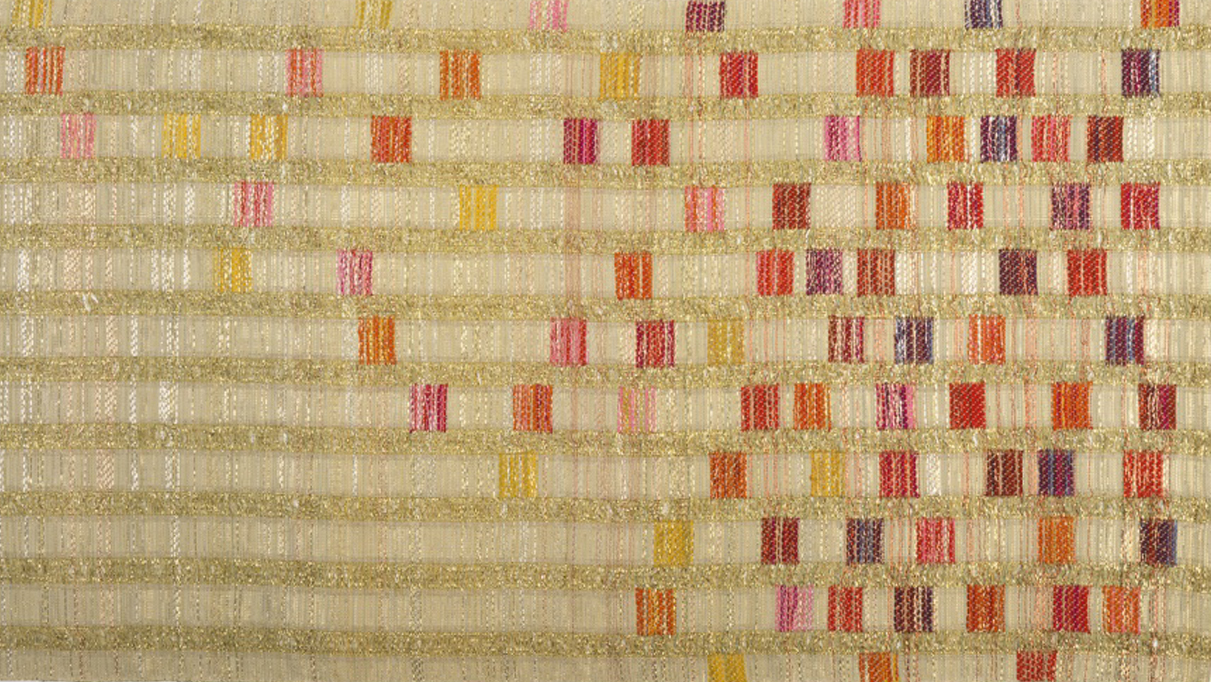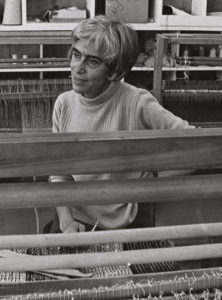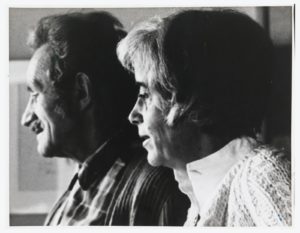Trude Guermonprez



Trude Jalowetz Guermonprez (1910-1976) was born in Danzig, Germany and attended the School of Fine and Applied Arts in Halle-Saale, where she studied weaving under the Bauhaus-trained artist Benita Otte. In 1933, she earned a professional diploma from the Textile Engineering School in Berlin and received a fellowship to study Scandinavian weaving in Sweden and Finland. Upon completion of her studies, Guermonprez moved to Holland where she continued to foster her understanding of technical weave structures and patterns, working for the Dutch hand weaving production studio Het Paapje.
Guermonprez came from a family of artists; her father was a musicologist and opera conductor, and her mother was a voice teacher and bookbinder. Both of her parents immigrated to the United States in 1933 to assume faculty positions at the avant-garde Black Mountain College in North Carolina. Guermonprez, newly married to a young photographer named Paul Guermonprez, remained in Holland, working as a freelance designer for textile mills and architectural firms. On D-Day in 1944, her husband was tragically killed while fighting in the Dutch Resistance. A few years later, Guermonprez’s father passed away and her mother asked her to join her and her sister, Lisa, at Black Mountain College. By the invitation of Anni Albers, she became a full-time faculty member and continued teaching there until the dissolution of the weaving program in 1949.
Instead of returning to Europe, Guermonprez decided to move to northern California to join fellow European émigré and Halle-Saale classmate, the Bauhaus-trained ceramicist Marguerite Wildenhain at the Pond Farm Workshops. Though short-lived, Pond Farm served as an important incubator for the development of California craftsmen in the mid-20th century.

Trude Guermonprez and John Elsesser, ca. 1974
During her time at Pond Farm, Guermonprez met and married the craftsman John Elsesser. They settled in San Francisco and after a brief teaching position at the California School of Fine Arts (now the San Francisco Art Institute), she became a full-time faculty member at California College of Arts and Crafts (now known as the California College of Art & Design). In 1960 she was named Chair of the Crafts Department, and continued teaching there for nearly seventeen years.
In 1970 Guermonprez was awarded the American Institute of Architects’ Craftsman’s Award, but she received little recognition during her lifetime. Though often omitted from art historical discourse, Guermonprez played an important role in the American craft and fiber art movements of the 1950s, 60s and even into the 70s, particularly during her tenure at the California College of Arts and Crafts. Furthermore, her Bauhaus-influenced hand woven textiles greatly contributed to the development of modernism in California and beyond.